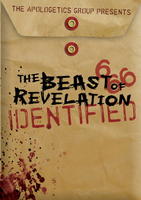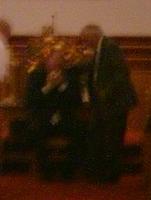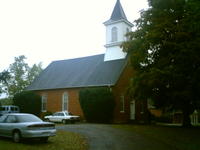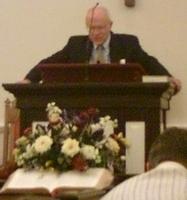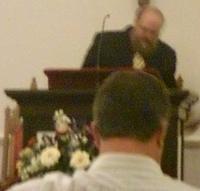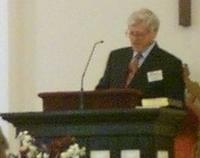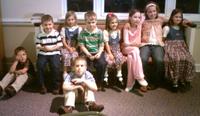This is an article I received via email about 2 months ago and thought I would post it for those of you who may not have read it. It is written by Doug Phillips of Vision Forum. Let me warn you that it is tongue in cheek, but should provoke us to think about thinking about what we read.

By Douglas W. Phillips
As well as being extraordinarily popular, the [Harry Potter] books have encouraged millions of children to start reading for the first time.... For those who have a problem with the idea of fantasy and alternative universes alongside ours, we need to recognize that almost all children play imaginative games in their minds starting at a very young age and have no difficulty whatsoever in distinguishing between fantasy and reality.... Additionally, the Harry Potter books send a strong message about moral order. There are beautiful and enjoyable human relationships among the characters, and there is a depth of commitment and service among them.... Finally, I see the books as valuable because they consistently include the three fundamental themes that can be found as a subtext in almost all good literature: the beauty of creation, the appalling reality of evil, and the universal human longing for redemption.... J.K. Rowling does not profess to be a Christian, as far as I am aware, but she has insight into the themes that are at the very heart of what Christians understand to be true about the nature of the universe in which we live.... All truth is God’s truth, and non-Christians recognize that truth to one degree or another.... It is said that because magic is a part of the ... books, they may have the effect of interesting children in the reality of the Occult.... The magic is simply a part of the imaginative worlds.... Some people have gone on record as stating that they believe that J.K. Rowling is purposely and explicitly teaching Occult and even Satanic practice. As a Christian, I have to say I am profoundly ashamed of those who have responded with this kind of malicious gossip. We must recognize that whenever she talks about evil magic she presents it as evil.” (Jerram Barr, Professor of Christianity and Contemporary Culture and Resident Scholar at The Francis Schaeffer Institute)[1]
Breaking News
This morning, the publishing industry surprised the world by releasing a new, unexpected companion volume to last week’s sixth installment of J.K. Rowling’s hugely successful Harry Potter series. As word of the new release spread like wildfire, crowds of frenzied children and teenagers began thronging at the doors of hundreds of local bookstores in the United States and U.K., hoping to be among the first to receive their own copy of a book bearing the title: Harry Potter and the Lavender Brigade.
Harry Potter and the Lavender Brigade continues to perpetuate all the sorceries, incantations, and spells which have delighted children around the world. But this installment of Harry Potter introduces a new theme — homosexuality. In Harry Potter and the Lavender Brigade, we discover that the Hogwarts School of Witchcraft and Wizardry is expanding its curriculum base to provide mandatory training in homosexuality for all of its recruits. Harry discovered in Book One that he was born with witchcraft in his blood. Now, recent discoveries show that the same students born with the gift of magic also possess a genetic predisposition toward homosexuality. With this in mind, the goal of Hogwarts is to teach its students the proper and moral way to be homosexual witches. Students must learn about safety, monogamy, and even social etiquette.
But the race is on. A second witch training academy run by evil witches has also discovered their own homosexual predispositions. Unlike Hogwarts, they intend to use their homosexuality for evil. They teach their students evils like sexual promiscuity. They openly encourage pedophilia. It is the mission of Harry and his intrepid gang of sodomite warlocks and lesbian witches (dubbed “The Lavender Brigade”) to once again stop the menace of bad witches.
No Cause for Concern
Perhaps some Christians have concerns about children’s literature in which homosexuality is both a defining characteristic of the protagonists and a thematic element which runs from beginning to the end of the novel.
Relax. Don’t be so uptight. Don’t worry, Christian parents. Harry Potter is not the real world! It is an imaginary world. Children know the difference between the two. They are not going to start dressing up like their heroes or pretending to do the same things their heroes do in the stories. After all, it is just a pretend story. Thoughtful Christian critics will recognize that the author has created an alternative reality with a completely different set of rules. Sodomy may be wrong in the real world, but it is not wrong in Harry Potter’s reality, and it would be sophomoric to think that, just because the book is one long story about the glories of good homosexuality in the world of Harry Potter, that it desensitizes children to the problems with homosexuality in the real world. We should be ashamed of any Christians who would claim the author is promoting perversion. She makes strong distinctions between good homosexuality and bad homosexuality. Bad homosexuality is always presented as really bad.
And here is the clincher: Harry Potter and the Lavender Brigade is a brilliant, well-written adventure that includes all the great themes of classic literature — the creation of an alternative reality where different rules apply, a carefully-executed plot, and clear elements of good versus evil. The story presents the beauty of creation and the appalling reality of evil. (Keep in mind that all truth is God’s truth.) There is even a strong redemption theme in the story as the leader of the pro-pedophilia group realizes the wrongness of his ways and joins the good sodomites of Hogwarts. In the end, good sodomites triumph over bad sodomites and order is restored to the alternative universe.
Confession
Okay, so there is no Harry Potter and the Lavender Brigade. I made it up.
What I have not made up is the fact that Pottermania has engulfed the youth of a generation, setting an unprecedented frenzy of sales of the recent installment, Harry Potter and the Half Blood Prince.[2] Within the first twenty-four hours of its release, nearly seven million copies were sold in the United States alone. Assuming a 9:00 a.m. to 9:00 p.m. sales schedule, that means they averaged nearly 600,000 copies an hour.
Also not made up is the fact that there are growing numbers of intelligent, reasonable, Christian teachers and scholars — some are friends whom I dearly love and respect — who are on record as giving their blessing to Harry Potter and supporting the inclusion of Harry Potter books as a healthy, positive part of the literary diet of Christian children. I disagree with them for many reasons, but it is the limited purpose of this article to focus in on and address what I see as their root argument.
The Argument for Potter
To begin with, there really is no debate between us over the basic facts of the Potter series. We all agree that Harry Potter is a story about young children engaged in the study and practice of witchcraft. The heroes of the stories are always good witches. Typically, the bad guys are bad witches. Second, in fairness, it must be acknowledged that these men recognize the wickedness of the occult and would squarely oppose the practice of witchcraft in the real world. None of them would want their children attempting to cast spells or dabbling in the dark arts.
What, then, is the fundamental argument employed by honorable Christian thinkers like Mr. Barr of Covenant Seminary (cited above) to endorse Harry Potter and to justify the creation of children’s books which are simply drenched in the glorification of sorcery?
It is this: Fantasy worlds are not the real world. Authors need not follow the same moral rules in fantasy realities. Things which are downright wicked in the real world may be introduced in a fantasy world and presented as good, if this literary device helps to serve the broader purpose of telling a great story.
My question is: If we may bend God’s moral laws in fantasy realities, then why is “Harry the Hero-Witch” okay for our children, but “Harry the Hero-Homosexual” not?
Both witchcraft and perversion are deemed “works of the flesh” and “abominations” in Scripture.[3] Both are immoral acts for which the practitioner stands condemned. Why would one be cute, fun, appealing, and — most importantly — legitimate in a fantasy reality, and the other unacceptable?
Not for Debate Today
Before presenting my argument, please permit me to clear away some debris.
First, it is not my purpose today to offer a broad-sweeping critique of the propriety and/or impropriety, strengths and/or weaknesses of fantasy as a genre. This is a worthy, big, important subject, but not my subject for the day. Nor am I arguing that because something is popular it is therefore inescapably evil. (I happen to like ice cream, and it does not bother me that ninety percent of Americans like it, too.) Mass entertainment appeal can raise concerns, but this argument will not carry the day one way or another.
Nor am I going to argue that Harry Potter is bad because it presents bad attitudes toward authority. To the extent that the bad attitudes of protagonists are either left unresolved in the story or presented to the reader as acceptable behavior — that is a big problem. But if this debate were really about bad attitudes, our criticism for Harry Potter would be similar in kind to that which might be expressed for 95% of the popular children’s literature and television programming of our day — media which is contributing by bad example to the discipleship in selfishness of a nation of bratty, disrespectful boys and girls.
Nor is it my purpose today to justify or condemn the Harry Potter series by comparing it to, or distinguishing it from, The Lord of the Rings or The Chronicles of Narnia. Similarities and distinctions between these series abound, but at the end of the day, neither the brilliant C.S. Lewis nor the ingenious J.R.R. Tolkien are the standard by which literature is to be judged. That standard is the revealed word of God alone which is a sufficient guide for all of faith and practice, including the development of biblical principles for evaluating literature. If either Lewis or Tolkien are guilty of employing literary devices inconsistent with a biblical worldview, then to the extent which they have missed the mark, we must be willing to say so. If not, great! But at all costs, we must not allow sentiment and experientialism to drive our theology. The issue is not whether Tolkien, Lewis, Rowling, or any other author can tell a great story, foster creative thinking, or entertain the reader — but whether they have done so lawfully.
I am less concerned with slippery-slope arguments, psychological arguments, or even empirical data about the number of children who have joined covens after reading Harry Potter. Some of the arguments are valid, some less so, some may be straw men, but none of these arguments are necessary if it can be demonstrated that, in its premise and execution, Harry Potter is inherently unbiblical, being in plain violation of the revealed law of God.
To Be Debated Today
The question is this: Is it biblically lawful to create alternative literary realities in which necromancy and witchcraft are presented as glorious, healthy, positive, and good?[4]
I say no because I believe to do so is inconsistent with revealed law. If pro-witchcraft fantasy realities are unlawful, then the fundamental question of whether Harry Potter is healthy literature is resolved.
Stated another way, the question is: Does the creation of “alternative fantasy realities” allow authors to employ literary premises which declare “good” that which God has declared morally reprehensible in the real world?
And another: If certain acts are abominations over which God pronounces the death sentence in the real world, should Christians glory in the same abominable practices when presented as desirable and declared to be “good” in the fantasy worlds of literature?
The Case Against Potter
The case that I would like to respectfully make in response to my brothers who defend Harry Potter is built on four propositions:
The seriousness of God’s prohibition on witchcraft and His declaration that it is immoral to practice dark arts make it unlawful even to pretend that witchcraft is a good thing;
Man may not lawfully escape the righteous rule of God by entering fantasy realities in which the law of God does not apply;
To create fantasy universes built on propositions which are immoral is to undermine the character of God Himself or establish false gods; and
God holds man accountable for vain imaginations. This means that fantasy is only lawful insofar as it does not undermine the moral law of God.
Point #1: The Seriousness of God’s Prohibition on Witchcraft
When you come into the land which the LORD your God is giving you, you shall not learn to follow the abominations of those nations. There shall not be found among you anyone who makes his son or his daughter pass through the fire, or one who practices witchcraft, or a soothsayer, or one who interprets omens, or a sorcerer, or one who conjures spells, or a medium, or a spiritist, or one who calls up the dead. For all who do these things are an abomination to the LORD.... (Deuteronomy 18:9-12)
The Bible, both Old and New Testament, has much to say about witchcraft, all of which is supremely negative. In anticipation of nitpickers and legalists who want to wiggle out of the prohibition against witchcraft, the Bible details by specific precept and numerous examples the wickedness of those who seek such supernatural powers and the judgment that will fall upon them.
The prohibitions against witchcraft elaborate to include witchcraft in any form or expression. Sorcerers, mediums, soothsayers, spell-casters, astrologers, and those who practice any dark art fall under the prohibition.
Witchcraft is declared to be an abomination (Exodus 22:18; Deuteronomy 8:9-12; 1 Samuel 15:23; Isaiah 8:19-20). Those who practice it are in rebellion against God (1 Samuel 15:23) and were subject to the death penalty (Exodus 22:18). They will not inherit the kingdom of heaven (1 Corinthians 6:9-10; Galatians 5:19-21), are detestable to the Lord (2 Kings 21:6; Micah 5:12; Isaiah 47:12; Ezekiel 13:18,20; Acts 8:11-24; Leviticus 20:27; Exodus 7:11; Revelation 9:21; 22:15), and will be cast into the burning lake of fire (Revelation 21:8).
Furthermore, God describes sorcery as an immoral “work of the flesh” and lumps it in with idolatry, murder, and adultery, declaring that those who do such will not inherit the kingdom of God (Galatians 5:19-21; Revelation 9:21).
The biblical response of God’s people to witchcraft is to (1) drive it from the land (Deuteronomy 18:9-12); (2) flee from every vestige of it, even if this means publicly burning expensive books (Acts 19:19); and (3) rebuke attempts to mix the spirit of sorcery with the spirit of Christ (Acts 8:1-40).
Point #2: Man May Never Escape the Righteous Rule of God
Supernatural powers, by definition, are the means to suspend or work outside of the natural law order created by God.[5] Our God reserves supernatural powers to Himself because He alone is the creator and the object of worship. He will share His glory with none other. Witchcraft is an abomination, not because of some arbitrary, localized principle applicable only to ancient Israel, but because it is rebellion against God Himself, who never, ever changes. Witchcraft is man’s attempt to be like God. It can involve the explicit false worship of devils, but it need not. Conjuring, sorcery, and divination are all attempts to have powers reserved to God. They are attempts to live outside of the reality in which God has placed man.
I am frankly amazed at the efforts of some to strain at a gnat and swallow a camel when it comes to the issue of witchcraft. It truly seems like we are often more interested in justifying the theology of Walt Disney, than we are in sticking to the plain teaching of Scripture. The fact is that the Bible makes no distinctions between cute, harmless sorcery (or necromancy or divination) and a bad kind. Any attempt to participate or dabble in supernatural dark arts is a crime in God’s universe. You can dress up cute little fairies in bonnets, but the minute they attempt to cast spells or invoke supernatural powers reserved to God, they become moral criminals.
Note that we are not discussing fiction about potential scientific discoveries. The exploration of the natural universe is explicitly given to man by God as a means of understanding Him better and for executing his duty under God to take dominion over the earth. And let’s not kid ourselves — Harry Potter is not about scientific children who create amazing flying-broom machines. It is about sorcerers engaged in witchcraft. Under the Hebrew economy, Harry Potter, the great hero of a generation of children, would be put to death[6] by direct order of the King of Kings and author of all reality — Jesus Christ Himself.
Nor are we criticizing Harry Potter for the inclusion of talking animals in its storyline. The Bible begins[7] and ends[8] with revelations about talking animals, a fact which establishes beyond any doubt that the inclusion of talking animals in storytelling is not per se an abomination which assaults the very character of God. Similarly, dragons,[9] demons,[10] giants,[11] and unicorns[12] may be the stuff of fantasy lore, but they are also real creatures discussed, as such, in the Bible. None of these elements assault the righteous rule of God, but a fantasy universe filled with “good sorcerers” does.
Point #3: Man May Not Refashion a God of His Own Imagination — Even in a Fantasy Reality
The eternal quest of rebellious man is to escape the law and dominion of God. Man wants to create realities of his own where he is free to operate without the constraint of the rule of law as prescribed by God. The moral law of God and its application in the universe reflect the eternal, transcendent, immutable character of God Himself.[13] Consequently, those who seek to create alternative realities in which the moral law of God is suspended are, in fact, creating alternative realities governed by something or someone other than the God of the Bible. This god need not be explicitly revealed by name. He can be implied or simply assumed. Even the perceived absence of a god in an alternative reality presupposes some unifying, eternal, transcendent principle or “force.” The point is this: Every alternative reality has a god. Those alternative realities which alter the moral law of the God of the Bible thereby substitute a false god as lord over the universe they have created.
Like the Babel-builders of the past, twenty-first century man is discontent with the rules and realities given to him by God. He wants a different reality. It is the quest of some fantasy literature to satisfy this ungodly longing by recreating God in man’s own image. This happens when we construct literary worlds which rest on propositions which challenge the very character of God Himself.
Note that the use of allegories, parables, types, and symbolism can be employed in literature lawfully and to the glory of God. Jesus Christ modeled this Himself in Holy Scripture.[14] Christ-honoring authors may draw from a host of techniques and circumstances when employing such literary devices. But the moment an author redefines the moral law order of the universe, he has left the realm of legitimate analogical reasoning and creative allegory, and has declared war on God. This is the case for fantasy realities in which murder, perversion, or witchcraft are presented as good things.
The character of God is challenged when we posit alternative realities which redefine the moral law order of God to allow men to delight in that which would be deemed wickedness in the real world. Creating worlds of good witchcraft versus bad witchcraft is a prime example of the problem. No such world can exist — anywhere — not even in our own imagination, without redefining the nature and attributes of God Himself. The essence of witchcraft and the desire to employ the tools of witchcraft are an assault on the Lordship and sovereignty of God. By virtue of the fact that Harry and his friends are “good guys” in pursuit of the very powers reserved to God Himself in the real world, the god of Harry Potter’s universe is, ispo facto, a different god than the God of our universe.
And no one need ask, “What Would Jesus Do?” in the real world to Harry and his friends, because the Bible answers the question with deafening specificity:
But the cowardly, unbelieving, abominable, murderers, sexually immoral, sorcerers, idolaters, and all liars shall have their part in the lake which burns with fire and brimstone, which is the second death. (Revelation 21:8)
Point #4: The Bible Forbids Not Merely Acts, But Vain Imaginations
Why do the heathen rage, and the people imagine a vain thing? (Psalm 2:1)
Not all imagination is wrong, but vain imagination is wrong. A “vain imagination” is one in which man seeks to create a reality at war with God and His law.
We live in a world in which millions of men and women leave what they perceive to be a humdrum life of marriage to escape into a fantasy-world of alternative reality. They do this in their minds.[15] They are aided and abetted in this practice by literature, images, and film which become the mediator between the individual and the fantasy world. In their alternative fantasy realities, these men and women are not married to their boring, overweight, selfish wives and husbands. Instead, they are able to enjoy intimate relations, free of guilt, with seemingly perfect individuals who appear nearly superhuman in their emotional and physical perfections. Since this is only a fantasy — the argument goes — there is nothing wrong with it. Some argue that modern man can actually cope better in the real world if he regularly visits his fantasy world.[16]
Christian advocates of Harry Potter make the same mistake: In effect, they are arguing that little children may freely take witchcraft into their hearts by identifying with their sorcerer-hero and rejoicing in his magical powers — just so long as they would not engage in dark arts in the real world. After all, little children know the difference between reality and fiction.
This response misses the point. The Bible offers no refuge to the individual who says, “It is okay for me to imagine and rejoice in the vanity of immoral speculations, because I am not doing it in the real world.” If you imagine such things in your heart, you stand condemned. The Lord Jesus Christ answered those legalists who wanted to limit the scope of the culpability before the law to the physical world. He explained that they would be condemned for having wicked imaginations in their fantasy world as well:
Ye have heard that it was said by them of old time, Thou shalt not commit adultery: But I say unto you, That whosoever looketh on a woman to lust after her hath committed adultery with her already in his heart. (Matthew 5:27-28)
The same principle that applies to pornographic literature applies to witchcraft-glorifying literature. Men do not have the right to enter fantasy worlds in which they delight in their hearts in acts of adultery. Nor do they have the right to enter fantasy worlds in which they delight in immoral acts of witchcraft.
The Use of Witchcraft in Literature and Entertainment
For the record, I do not oppose the appropriate inclusion of witchcraft in literature. The Bible tells the story of actual witches. It describes the practices of these witches and reveals the laws against witchcraft. We learn of the divinations of Jezebel,[17] the consultation by Saul with the witch of Endor,[18] and the influence and rebuke of Simon the Sorcerer.[19] Witchcraft is in Old and New Testaments. But witchcraft is always presented as an incontrovertible evil.
Just as there is nothing funny, glorious, or desirable about adultery, perversion, or murder — there is nothing funny, glorious, or desirable about witchcraft (see Galatians 4:24).[20] It is one thing for a story to include adultery, perversion, murder, and witchcraft in their true despicable form as an element necessary to make a righteous point, but it is another to portray abominations as virtues. Any television show, film, or literature which does the latter is encouraging others to identify in their imaginations with evil.
To put it bluntly: Bewitched — bad! Walt Disney’s Merlin from Sword in the Stone — bad! Glinda the Good Witch of Oz — bad! The White Witch of Narnia — not necessarily bad at all, because she is presented as the incarnation of evil. Gandalf? You will have to do the math yourself.[21]
Concessions
At this point, I am losing some of you. You have cherished fond childhood memories of these icons of twentieth-century culture. There is massive sentimental value associated with these stories. If the principles articulated in this paper are true, then there could be some substantial boat-rocking in your life — perhaps even some changes in your reading or viewing diet. I hear you. My own boat has been substantially rocked over the years as I have considered the implications of the character of God and His law-word upon the icons of modern culture.
Let me offer a little help and a few concessions:
Concession number one: There are some genuine challenges and tough calls involved when evaluating what constitutes Christ-honoring literature. I fully recognize the complexity of faithfully applying these principles, for example, to the use of various literary devices that appear to incorporate mysterious transportation vehicles or tools which possess unusual powers. Meditation, prayer, and reasoned analysis are the need of the hour. Faithful men may disagree on some applications. But the challenge of application never absolves us of our personal duty before the Lord to rigorously examine everything in light of Scripture.
Second, there is not a man on the planet who is perfectly consistent in the application of the biblical principles he understands, let alone the ones with which he is grappling. Here again, the fact that there are inconsistencies in our behavior, or holes in our thinking, does not relieve us of the biblical duty to become more consistent in the application of our Christianity as we take every thought, frame, and note — everything — captive to the obedience of Christ.
Third, many Christians are uncomfortable tossing out an otherwise “good story” because it has one offensive element. I certainly understand this challenge. For some, the answer is to perform a balancing test which weighs the good against the bad to see which comes out on top. But when it comes to Harry Potter, no balancing act is needed. This consideration need not apply. Why? Because the premise of the stories is witchcraft, the plot of the story is witchcraft, and the protagonists are all witches. From beginning to end, Harry Potter is a story immersed in a subversive lie about a genuine abomination called witchcraft. Period! Harry Potter calls evil good, and thus falls under the explicit censure of our Lord.
Conclusion
Harry Potter favorably models for children that which the Bible clearly and unequivocally declares to be an abomination.[22] It creates heroes of a class of individuals that the Bible declares to be villains. In the world that God created, the heroes of Harry Potter would (absent their repentance) be enemies of the Church and eternally damned souls.
Moral evil does not become acceptable simply because it is presented in an alternative reality. There is no such thing as good witchcraft, good bestiality, good sodomy, good child sacrifice, or good Dagon worship in this reality (the only reality created by God); and man is not at liberty to free himself from the law of God by concocting fantasy worlds of his imagination in which the transcendent, eternal, binding moral law of God no longer applies.
Finally, the Bible, not sentimentalism or personal experience, is the only standard by which the Christian may evaluate his culture.[23] By this standard, Harry Potter fails the test of biblical acceptability. Just as Christians should oppose the glorified homosexuality of a hypothetical Harry Potter and the Lavender Brigade, so they should also recognize the systemic poison of any and all Potter books that are built on the false proposition that witchcraft can be a good thing.
But these two things shall come to you in a moment, in one day: The loss of children, and widowhood. They shall come upon you in their fullness because of the multitude of your sorceries, for the great abundance of your enchantments. (Isaiah 47:9)
Doug Phillips is the president of Vision Forum Ministries, the founder of the San Antonio Independent Christian Fillm Festival, and a faculty member of the Christian Filmmakers Academy, dedicated to bringing a presuppositionally biblical approach to film and culture.
--------------------------------------------------------------------------------
[1] This week, a very thoughtful article by seminary professor and Christian apologist Jerram Barr, offering a defense of the Harry Potter series, was presented on christiancounterculture.com. The article reflects the sentiments of a growing number of Christian thinkers that books and film immersed in ostensibly pagan motifs and literary devices are basic to a healthy cultural diet for children and are pleasing to Christ — so long as they include moralisms, a redemption theme, and a good story line.
[2] Scholastic Corp., the U.S. publisher of the Harry Potter books, said the sixth installment of the series sold a record 6.9 million copies in the first twenty-four hours after thousands of fans packed stores for the book’s midnight release.
[3] “When you come into the land which the LORD your God is giving you, you shall not learn to follow the abominations of those nations. There shall not be found among you anyone who makes his son or his daughter pass through the fire, or one who practices witchcraft, or a soothsayer, or one who interprets omens, or a sorcerer, or one who conjures spells, or a medium, or a spiritist, or one who calls up the dead. For all who do these things are an abomination to the LORD...” (Deuteronomy 18:9-12). “Now the works of the flesh are manifest, which are these; Adultery, fornication, uncleanness, lasciviousness, Idolatry, witchcraft, hatred, variance, emulations, wrath, strife, seditions, heresies, Envyings, murders, drunkenness, revellings, and such like: of the which I tell you before, as I have also told you in time past, that they which do such things shall not inherit the kingdom of God” (Galatians 5:19-21).
[4] Some would argue that the world of Harry Potter is not an alternative fantasy reality, but a reality that exists alongside normal humanity, and that we are simply unaware of its existence. It really makes no difference to the thesis of this paper whether Harry Potter’s world is a real alternative reality or only a quasi-alternative reality. My argument is that man may never posit realities in which moral evil is acceptable.
[5] “MIRACLES: The miracle proper is a work of God (Ex 7:3 ff; Deut 4:34-35, etc.; John 3:2; 9:32-33; 10:38; Acts 10:38, etc.); but as supernatural acts miracles are recognized as possible to evil agencies (Matt 24:24; 2 Thess 2:9; Rev 13:14; 16:14, etc.)” (International Standard Bible Encyclopaedia).
[6] “Thou shalt not suffer a witch to live” (Exodus 22:18).
[7] “Now the serpent was more subtil than any beast of the field which the LORD God had made. And he said unto the woman, Yea, hath God said, Ye shall not eat of every tree of the garden?” (Genesis 3:1).
[8] “And the four beasts had each of them six wings about him; and they were full of eyes within: and they rest not day and night, saying, Holy, holy, holy, Lord God Almighty, which was, and is, and is to come” Revelation 4:8).
[9] “Awake, awake, put on strength, O arm of the LORD; awake, as in the ancient days, in the generations of old. Art thou not it that hath cut Rahab, and wounded the dragon?” (Isaiah 51:9).
[10] “And they came over unto the other side of the sea, into the country of the Gadarenes. And when he was come out of the ship, immediately there met him out of the tombs a man with an unclean spirit, Who had his dwelling among the tombs; and no man could bind him, no, not with chains: Because that he had been often bound with fetters and chains, and the chains had been plucked asunder by him, and the fetters broken in pieces: neither could any man tame him. And always, night and day, he was in the mountains, and in the tombs, crying, and cutting himself with stones” (Mark 5:1-5).
[11] “There were giants in the earth in those days; and also after that, when the sons of God came in unto the daughters of men, and they bare children to them, the same became mighty men which were of old, men of renown” (Genesis 6:4).
[12] “God brought him forth out of Egypt; he hath as it were the strength of an unicorn: he shall eat up the nations his enemies, and shall break their bones, and pierce them through with his arrows” (Numbers 24:8). “But my horn shalt thou exalt like the horn of an unicorn: I shall be anointed with fresh oil” (Psalm 92:10).
[13] “Heaven and earth shall pass away, but my words shall not pass away” (Matthew 24:35). “All scripture is given by inspiration of God, and is profitable for doctrine, for reproof, for correction, for instruction in righteousness: That the man of God may be perfect, throughly furnished unto all good works” (II Tim. 3:16-17).
[14] “All these things spake Jesus unto the multitude in parables; and without a parable spake he not unto them” (Matthew 13:34).
[15] “Men who will not be governed by God’s word will not be governed by reality, because reality is not of their making. God having created all things, reality reflects the mind of God, not man. Hence, it is the essence of sin to resort to imagination to escape God’s law world” (R.J. Rushdoony, Systematic Theology, vol. 1, pg. 474).
[16] Ibid. Rushdoony further elaborates: “Why should an unreal female be exciting, and a far better and real woman not be so? The key is the essence of imagination: the fantasy woman is totally the creation and creature of man, whereas the real woman is God’s creation and creature. It is essential to imagination to create a man-made world and a man-ordained decree of predestination. It is the essence of sin to demand such a world.”
[17] “And it came to pass, when Joram saw Jehu, that he said, Is it peace, Jehu? And he answered, What peace, so long as the whoredoms of thy mother Jezebel and her witchcrafts are so many?” (2 Kings 9:22).
[18] “Then said Saul unto his servants, Seek me a woman that hath a familiar spirit, that I may go to her, and enquire of her. And his servants said to him, Behold, there is a woman that hath a familiar spirit at Endor” (1 Samuel 28:7).
[19] “And when they had gone through the isle unto Paphos, they found a certain sorcerer, a false prophet, a Jew, whose name was Barjesus” (Acts 13:6).
[20] “Which things are an allegory: for these are the two covenants; the one from the mount Sinai, which gendereth to bondage, which is Agar” (Galatians 4:24).
[21] Permit me a brief bunny trail: For the same reason (biblical revelation) that I categorically reject the notion that there can be good witchcraft and bad witchcraft, I believe it certainly could (where carefully and properly executed) be appropriate and God-glorifying to vest an allegorical figure representing Christ or His angels (to whom authority is delegated) with the same authoritative powers reserved to the Deity. But this is a far-cry from spell-casting “good witches.” Further, we should heed God’s warnings and be careful not to allow the lines of distinction between the two to be blurred.
[22] Deuteronomy 18:9-12.
[23] “And be not conformed to this world: but be ye transformed by the renewing of your mind, that ye may prove what is that good, and acceptable, and perfect, will of God” (Romans 12:2). “Casting down imaginations, and every high thing that exalteth itself against the knowledge of God, and bringing into captivity every thought to the obedience of Christ” (II Corinthians 10:5).
